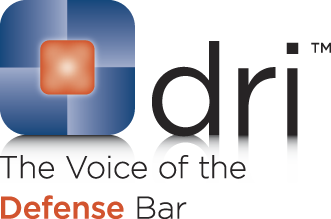 Wilma Winters died. Ms. Winters’ Estate claimed via its executrix Ms. Newell that the Estate was the owner of certain real property.
Wilma Winters died. Ms. Winters’ Estate claimed via its executrix Ms. Newell that the Estate was the owner of certain real property.
Two companies, via their trustee, A.R. Salman, filed a quiet title action against same real property that was claimed by the Winters Estate.
In its opposition, the Estate argued that the Complaint must be dismissed because Mr. Salman, a non-lawyer, could not represent the corporations. In the companies’ replies, Ms. Salman stated that the companies were not corporations but were trusts. Therefore, he argued, that he could represent the companies even though he was not a lawyer.
The District Court dismissed the companies’ Complaint. Mr. Salman appealed.
The opinion of Salman v. Newell, 110 Nev. 1333, 885 P.2d 607 (1994) reports that the Supreme Court ordered Mr. Salman to get an attorney or risk having his appeal dismissed. Mr. Salman chose not obey the Court’s Order. He decided instead to argue with the Court. He told the court that he was the trustee and was authorized to act in behalf of the trust without being a lawyer. He also told the Supreme Court that NRS § 7.285 was not officially passed by the Nevada Legislature.
The Nevada Supreme Court straightened Mr. Salman out. The Court said:
Although a person is entitled to represent himself or herself in the district court, see SCR 44 (“nothing in these rules shall be so construed as to prevent any person from appearing in his own behalf in any court in this state except the supreme court”), no rule or statute permits a person to represent any other person, a company, a trust, or any other entity in the district courts or in this court.
We conclude that Salman may not represent the Tuesday Company or the Wednesday Company in either the district court or this court. We further conclude that neither the Tuesday Company nor the Wednesday Company may proceed in proper person in this court. Because the Tuesday Company and the Wednesday Company refuse to obtain counsel to represent them, we dismiss this appeal.
Id. at 1336, 885 P.2d at 608-09.
The same rule applies in Federal Court. 28 USC § 1654 states:
§ 1654. Appearance personally or by counsel
In all courts of the United States the parties may plead and conduct their own cases personally or by counsel as, by the rules of such courts, respectively, are permitted to manage and conduct causes therein.
Nevertheless, the case of Pyankovska v. Abid, 2017 U.S. Dist. LEXIS 51325, *2-3, explains:
Only a licensed attorney—an active member of the State Bar of Nevada admitted to practice under the Nevada Supreme Court Rules—is authorized to represent a client in Nevada. Guerin v. Guerin, 116 Nev. 210, 993 P.2d 1256, 1258 (Nev. 2000) (citing NRS 7.285); Martinez v. Eighth Jud. Dist. Ct., 102 Nev. 561, 729 P.2d 487, 488 (Nev. 1986) (an individual “has no right to be represented by an agent other than counsel in a court of law”). In federal courts “the parties may plead and conduct their own cases personally or by counsel” 28 U.S.C. § 1654 (emphasis added). Although an individual is entitled to represent himself or herself, no rule or statute permits a non-attorney to represent any other person, a company, a trust, or any other entity. Jackson v. United Artists Theatre Circuit, Inc., 278 F.R.D. 586, 596 (D. Nev. 2011); Salman v. Newell, 110 Nev. 1333, 885 P.2d 607, 608 (Nev. 1994). Thus, pro se parties may not pursue claims on behalf of others in a representative capacity. See, e.g., Simon v. Hartford Life, Inc., 546 F.3d 661, 664-65 (9th Cir. 2008) (collecting cases and noting that courts routinely prohibit pro se plaintiffs “from pursuing claims on behalf of others in a representative capacity”); Russell v. United States, 308 F.2d 78, 79 (9th Cir. 1962) (“A litigant appearing in propria persona has no authority to represent anyone other than himself.”).
If you have questions about whether you can represent your corporation in court, please contact Mike Mills at 702.240.6060×114 or email him at mmills@blwmlawfirm.com.
 Follow
Follow Email
Email


